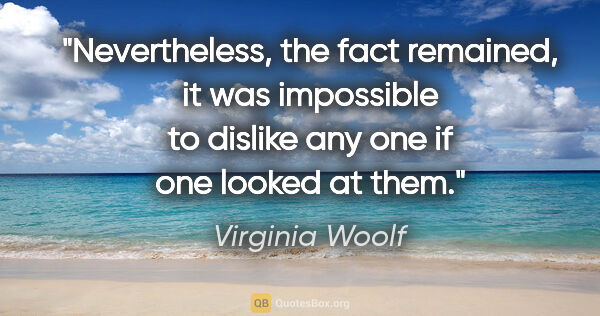Oneness Quotes (page 310)
Whatever I was, I owed to my family and to all those who struggled with me. But my biggest debt I owed to my wife. She was the one who gave my life meaning. All I could pledge to her, and to all those millions, was that I would do all I could to justify the faith that she, and they, had in me. I would try more than ever to make my life one of which she, and they, could be proud. I would do in private that which I knew my public responsibility demanded.
Martin Luther King jr.
You think wars get started because some duke gets shot, or someone cuts off one’s ear, or someone’s sited their missiles in the wrong place. It’s not like that. That’s just well, just reasons, which haven’t got anything to do with it. What really causes wars is two sides that can’t stand the sight of one another and the pressure builds up and up and then anything will cause it. Anything at all.
Terry Prachett
What is bad? What is good? What should one love, what hate? Why live, and what am I? What is lie, what is death? What power rules over everything?" he asked himself. And there was no answer to any of these questions except one, which was not logical and was not at all an answer to these questions. This answer was: "You will die--and everything will end. You will die and learn everything--or stop asking.
Leo Tolstoy
Dukakis? A name with more than two vowels in it running for President! The last time that had happened was Eisenhower (who looked good on a tank). Generally speaking, Americans like their presidents to have no more than two vowels. Truman. Johnson. Nixon. Clinton. If they have more than two vowels (Reagan), they can have no more than two syllables. Even better is one syllable and one vowel: Bush. Had to do that twice.
Jeffrey Eugenides

Daniel Defoe was an English writer, journalist and spy, who gained enduring fame for his novel Robinson Crusoe. Defoe is notable for being one of the earliest practitioners of the novel and helped popularize the genre in Britain. In some texts he is even referred to as one of the founders, if not the founder, of the English novel. A prolific and versatile writer, he wrote over five hundred books, pamphlets, and journals on various topics (including politics, crime, religion, marriage,...
Daniel Defoe
Suppose one reads a story of filthy atrocities in the paper. Then suppose that something turns up suggesting that the story might not be quite true, or not quite so bad as it was made out. Is one's first feeling, "Thank God, even they aren't quite so bad as that,' or is it a feeling of disappointment, and even a determination to cling to the first story for the sheer pleasure of thinking your enemies as bad as possible? If it is the second then it is, I am afraid, the first step in a process...
C. S. Lewis
